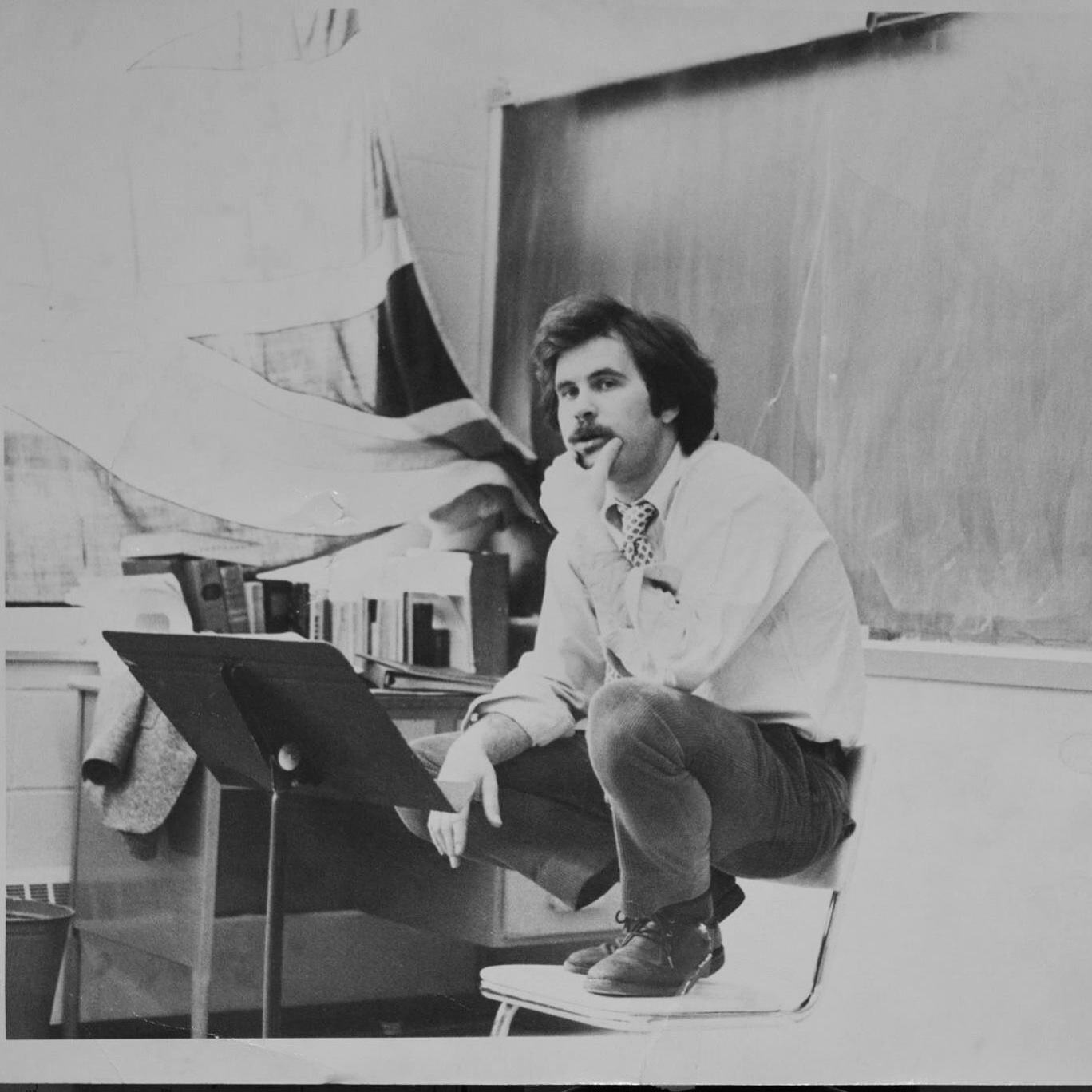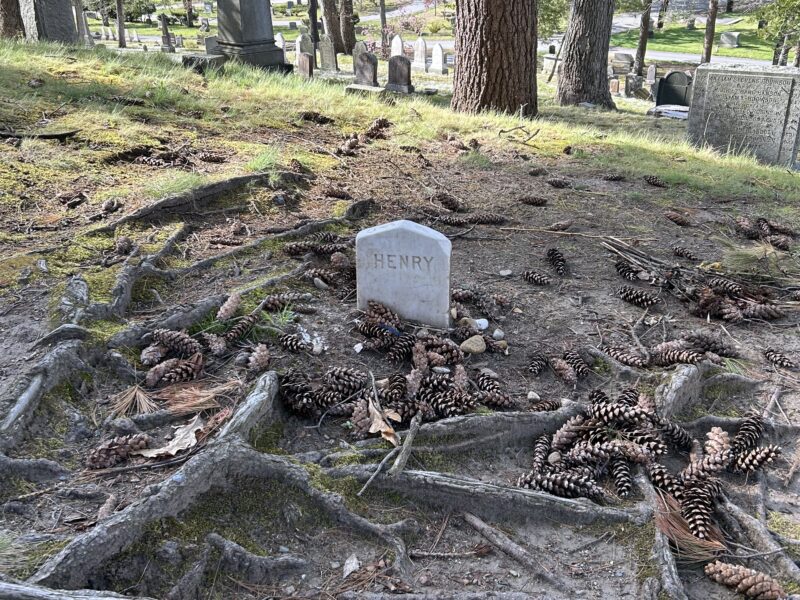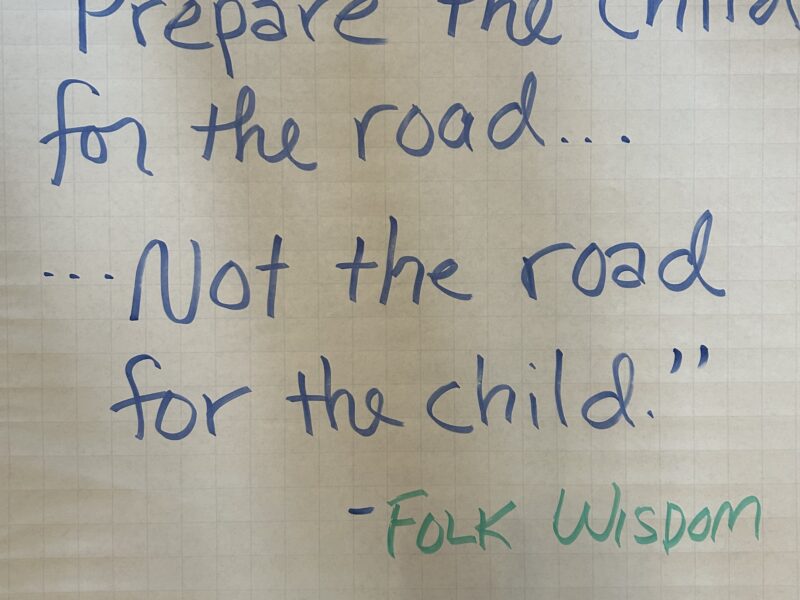
This week I was asked to have lunch with Hyde’s rookie teachers and share some tips on how they might maximize their effectiveness. Other than filling in occasionally, it’s been a while since I have been in the classroom. But if I were starting all over, I might give a look at this Top 10 list.

1. Don’t Smile Until Christmas
Bowdoin didn’t offer an Education major in the mid-70s, but I took all of Prof. Paul Hazelton’s awesome courses on the topic. As we prepared to graduate, he gave many of us a copy of this book, one that holds up over a half-century since its publication.

2. Pick Battles Small Enough to Win… and… Large Enough to Matter
Can’t remember where I first heard, read, or stole this back in the 70s, but it sure has saved me a lot of head-/heartache.
3. You do not get to know where your influence ends.
Stolen from Henry Adams (1838-1918). A bit Hallmarkish, perhaps, but for whatever reason, it has helped me stay serene.

4. Remember: You’re a sculptor, not a painter.
In his ground-breaking 1991 book Dumbing Us Down, author John Gatto presents a comparison of the painter and the sculptor as a metaphor for great teaching. He observes that a painter begins with a blank canvas and adds patterns of color to create a new design where there had been nothing. A sculptor, on the other hand, begins with a mass of stone and transforms it by subtracting matter to reveal a shape that was always there just waiting to be exposed to the world. Hyde is and has always been all about character ed. However, we do not pour character into our students. Rather, we summon it forth with values-forming challenges and experiences. (This also helps me stay serene.)

5. “Tell me and I forget. Teach me and I remember. Involve me and I learn.” – Benjamin Franklin
There is also an ancient Asian proverb that speaks to this point. (One of my pet peeves at Hyde is that we do not use audio-visual aids enough in our presentations.) I require my students to take notes in class. Even if they lose them right after class, the very act of writing them down aids memory much more than mere passive listening.
6. Differentiated Expectations
In the late 80s, I found myself teaching a U.S. history class that happened to include one of the Top-5 students I had ever taught juxtaposed with one from the opposite end of that spectrum. Having already concluded that the tried-and-true method of having the strong students tutor the weaker ones only goes so far, I was looking for something that would bring intellectual challenge to both extremes. So, we created a two-tiered expectation: 1) In order to Pass the course, each and every student would have to stand before the class at some point during the spring and offer a unique independent thought on any aspect of U.S. history. (This was in addition to the standard expectations involving attendance, participation, tests, papers, etc.) As an example, I recall one student’s contention and defense of the notion that Panama Canal was an unnecessary endeavor….. 2. In order to receive Honors, a student would first be expected to declare that intention and then would present and defend a 15-minute presentation that placed all of U. S. history within the context of a unique perspective. The audience would include the whole class as well as, for added challenge, the entire History department. As an example, I will never forget the presentation a student gave that portrayed U.S. history as a drama involving three actors: The Rebel, The Conformist, and The Victim. A beautiful piece of academic work!….. To be sure, differentiated abilities are a big challenge to any teacher, but I found this method to be one of the most effective measures I was able to implement.

7. Read
Imagine that! In addition to the aforementioned Don’t Smile Until Christmas and Dumbing Us Down, here are five books that helped me raise my game:
- The Headmaster by John McPhee (1966) – Tells the story of Frank Boyden’s 66 years as the legendary head at Deerfield Academy.
- The First Year of Teaching – Real World Stories From America’s Teachers by Pearl Kane (1991) – Another one of my heroes and one I was fortunate to have as a personal mentor
- Yo, Millard Fillmore by Will Cleveland & Mark Alvarez (1992) – Promises to help anyone memorize all the presidents — in order — in 20 minutes! Used to buy it for my students. Fun!
- More Like Us – Making America Great Again by James Fallows (1989) — Had my Government classes read this in the 90s. (And, No, it most definitely is not a MAGA propaganda piece!)
- The Genius of American Education by Lawrence Cremin (1965) – Little book. Big ideas.
I suspect that your first reaction to the above list might be: Whoa. Malcolm’s mad old. Those books are seriously dated! I hope your second reaction is: I need to find and read some books that work for me.
8. My Beach in July Theory
Came up with this decades ago. So, imagine one your students lying on a beach next July. Someone then encounters them and asks, “So, you had Mr. Gauld (substitute your name for mine) for history last year?”… Student: “Yeah.”… Someone: “What did you learn?”… Now ask yourself, What would you want that student to say at that precise moment? Teach to that, over and over. For a more detailed explanation, click on this link: https://www.thoughtsoncharacter.com/beach-in-july-theory/

9. Remember Your First Teaching Moment
From time-to-time, I refer back to my very first class at Hyde in 1977. Here’s a post I wrote about it: https://www.thoughtsoncharacter.com/1st-teaching-moment-

10. Solicit the Parents
Could get myself into some trouble here, but when people ask me how kids have changed over the course of my career, I have been known to respond with: “They might have changed some, but their parents have changed a lot.” Today’s parents are far more involved in the daily affairs of their children than they were in the 70s when I began. I’ve been open in stating my belief that this development has not come without difficulties for teachers. Good or bad, for the time being, it’s here to stay. Therefore, use it to your advantage. If you’ve got students doing great work, drop the parents a line and let them know. If the opposite is true, do the same. Not only are you likely to hear back from them, you just may recruit their support in steering their children toward the path of being better learners. And that’s a good thing.
Onward, Malcolm Gauld



